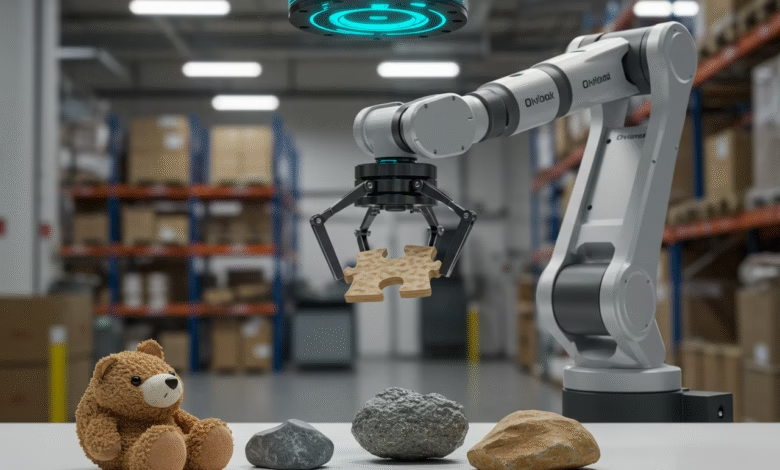Meta’s AI Enables Robots to Handle Unseen Objects Effortlessly

▼ Summary
– VB Transform is a long-standing event for enterprise leaders to discuss AI strategy, particularly in deploying AI in real-world applications.
– Meta’s V-JEPA 2 model addresses AI’s lack of physical common sense by learning a “world model” from video and interactions, enabling better prediction and planning in dynamic environments.
– V-JEPA 2 uses an encoder-predictor architecture to efficiently predict high-level scene features, reducing computational costs compared to generative models.
– The model is trained in two stages: self-supervised learning from internet videos and fine-tuning on task-specific data, allowing zero-shot planning for robots in new environments.
– V-JEPA 2’s efficiency and adaptability make it suitable for real-world applications like logistics and manufacturing, reducing training overhead and enabling on-prem or edge deployment.
Meta’s latest AI breakthrough enables robots to manipulate unfamiliar objects with unprecedented adaptability, marking a significant leap toward intelligent automation in industrial settings. Unlike traditional AI models limited by rigid programming, this new approach allows machines to develop physical intuition through observation—much like humans do.
The system, called V-JEPA 2, learns by analyzing video data to build an internal “world model” that predicts how objects interact. Instead of processing every pixel like conventional vision models, it focuses on high-level features such as object trajectories and spatial relationships. This makes it far more efficient, requiring just 1.2 billion parameters, a fraction of the computational power needed by larger models.
How the AI learns physical reasoning
Humans instinctively understand cause and effect, like predicting where a rolling ball will stop. V-JEPA 2 replicates this ability through a two-stage training process. First, it absorbs over a million hours of unlabeled video footage, developing a foundational grasp of physics without human supervision. Next, it fine-tunes on a small dataset of robotic actions, linking specific movements to real-world outcomes.
The result? A robot can encounter an object it has never seen before and still determine how to pick it up, stack it, or place it precisely. In tests, the system achieved 65-80% success rates in unfamiliar environments, without additional training.
Why this matters for industry
For manufacturers and logistics providers, this adaptability is a game-changer. Traditional automation struggles with variability, different product shapes, packaging, or warehouse layouts often require costly reprogramming. With V-JEPA 2, robots can generalize from limited data, reducing downtime and deployment costs.
The model’s efficiency also makes it viable for edge computing. Unlike cloud-dependent AI, it runs on a single high-end GPU, enabling real-time decision-making without latency. Factories can deploy it locally, avoiding data privacy concerns while cutting cloud expenses.
Beyond robotics, the technology could enhance digital twins, virtual replicas of physical systems used for simulation and training. By predicting equipment failures or optimizing workflows in a risk-free environment, businesses gain a powerful tool for operational efficiency.
Meta has open-sourced the model, encouraging collaboration to refine its capabilities. For enterprises, this signals a shift toward software-defined robotics, where a single AI policy adapts across multiple machines, from lab prototypes to industrial arms, without exhaustive retraining.
The implications are clear: as AI begins to “understand” the physical world, automation becomes smarter, faster, and more accessible. The next wave of intelligent robots won’t just follow scripts, they’ll improvise, problem-solve, and integrate seamlessly into dynamic workplaces.
(Source: VentureBeat)



